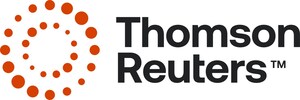Despite Challenges, Scientific Research Improves in Post-Apartheid South Africa, According to Thomson Reuters Analysis
PHILADELPHIA and LONDON, May 27 /PRNewswire/ -- Since the end of apartheid in 1994, South Africa has increased both its research output and its scientific collaboration with other countries.
In the May/June issue of Science Watch, Thomson Reuters assesses South Africa's research performance using its National Science Indicators, which tracks publication and citation statistics for more than 180 countries.
Science Watch last examined the state of research in South Africa in March 1995. As noted then, the country's scientific profile reflected its isolation from the world community: it was not well-represented in published papers and the research it conducted was not highly cited.
While South Africa continues to face problems including a lack of research policy leadership and inadequate funding for scientific research, its number of published papers and citation impact in various fields has climbed steadily.
In 1989, South Africa published approximately 3,300 papers. This number surpassed 6,600 in 2008. Meanwhile, its collaboration with authors from other countries increased. For example, South African researchers co-authored 1,700 papers with researchers in the United States from 1994 to 1998 -- and nearly 5,000 from 2004 to 2008.
Science Watch also examined South Africa's share of the world's scientific output across 21 fields. The country's largest share was in the field of Plant & Animal Sciences where it contributed 1.55 percent of the world's output.
South Africa beat the world average for citations-per-paper in several fields, including Computer Science, Environment/Ecology, Space Science, Immunology and Clinical Medicine. This is a huge difference from the pattern seen in 1995, when South Africa's impact figures bested the world average in only one field, Agricultural Sciences.
South Africa has by far the greatest research output of any country on the African continent.
"In assessing South Africa's research output, we were pleased to see such marked improvement both in output and in its collaborative efforts," said Christopher King, editor of Science Watch. "By increasing its impact on scientific research, the country is poised to become a key player in the global research community."
For the full article analyzing South Africa's recent research performance, visit www.ScienceWatch.com.
Thomson Reuters
Thomson Reuters is the world's leading source of intelligent information for businesses and professionals. We combine industry expertise with innovative technology to deliver critical information to leading decision makers in the financial, legal, tax and accounting, healthcare and science, and media markets, powered by the world's most trusted news organization. With headquarters in New York and major operations in London and Eagan, Minnesota, Thomson Reuters employs 55,000 people and operates in over 100 countries. For more information, go to www.thomsonreuters.com.
SOURCE Thomson Reuters
WANT YOUR COMPANY'S NEWS FEATURED ON PRNEWSWIRE.COM?
Newsrooms &
Influencers
Digital Media
Outlets
Journalists
Opted In



Share this article